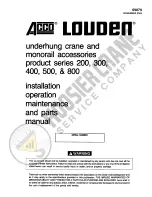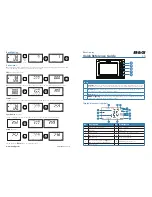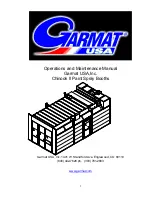
The Neptune Ultra is Stryker Instruments’ second generation waste management system. The
system is comprised of a docking station (or docker) and a rover. The rover offers mobile fluid waste
management with fluid volume sensing, smoke evacuation, and an IV Pole in a single, compact
footprint. The docker provides a fixed connection to the hospital’s waste drain and water supply. The
rover connects to the docker to off-load the contents and clean each canister.
General Description
The rover consists of two fluid collection canisters, and utilizes hoses, pumps, and valves to
provide suction for surgical waste fluid. Once the fluid has been removed, the rover stores it in one of
the two canisters. This fluid is off-loaded later through the docker. While docked, the rover receives
fresh water as well as Stryker detergent for pre-fill and self-cleaning purposes. The Rover also has a
smoke evacuation system and ULPA filter for the purpose of evacuating smoke. Also, a powered
height-adjustable IV Pole capable of holding four IV bags is provided on the same compact footprint. All
operations of the rover are controlled by software running on several microprocessors, but always
initiated through a user interface consisting of multiple LCDs, LEDs, switches, and dials. Each of the
sections below provides an overview of subsystem functions.
Small Canister
The small canister receives body waste fluids fluids from an input manifold, pre-fill (after a tank
dump) from the pre-fill tank, or the fresh water from the fluid diverter system to rinse during docking.
The fluid capacity for the small canister is 4 liters. A float sensor determines how much fluid is in the
small canister, with an accuracy of +/-50 ml. The pre-fill for the small canister is at least 375 ml. This is
necessary to establish a starting level for accurate fluid measurement. The small canister is plumbed to
the cap of the large canister which contains a drain valve to allow the fluid to empty via gravity flow.
Large Canister
The large canister receives body waste fluids from either an input manifold or the small canister,
and fresh water from the fluid diverter system to rinse during docking. The fluid capacity for the large
canister is 20 liters. A float sensor determines how much fluid is in the large canister, with an accuracy
of +/-150 ml. The pre-fill for the large canister is at least 1070 ml. This is necessary to establish a
starting level for fluid accurate measurement. The large canister is plumbed to the waste fluid coupling
which connects to the docker to off-load the contents of the canisters. The fluid is extracted by the off-
load pump in the docker which is routed to the facility drainage system.
Vacuum
A vacuum system is comprised of a pump, regulator, valves, and filters. The pump is connected
in parallel to both canisters to provide the negative pressure necessary for suction of surgical fluids.
The manifolds provide the interface from the surgical site to each canister. The maximum vacuum level
of each canister can be set and the actual vacuum level is displayed to the user on the user interface
panel. Redundant vacuum level sensors are provided for each canister. This provides a duplicate
monitoring system in case one sensor fails. A separate line receptacle is provided at the vacuum
regulator to provide connection to the hospital vacuum system. When using the hospital vacuum
system, the rover will not regulate vacuum but will display vacuum levels.
1-1
Summary of Contents for 0702-002-620
Page 1: ......
Page 3: ......
Page 5: ......
Page 15: ......
Page 17: ......
Page 19: ......
Page 21: ......
Page 22: ...Chapter 1 Operational Description...
Page 23: ......
Page 27: ......
Page 28: ...Chapter 2 Ultra Rover Disassembly...
Page 29: ......
Page 31: ...4 Remove front cover assembly P N 0702 001 070 CH and place aside 2 2...
Page 37: ...4 Remove front cover assembly P N 0702 001 070 CH and place aside 2 8...
Page 42: ...4 Remove front cover assembly P N 0702 001 070 CH and place aside 2 13...
Page 49: ...4 Remove front cover assembly P N 0702 001 070 CH and place aside 2 20...
Page 81: ...4 Remove front cover assembly P N 0702 001 070 CH and place aside 2 52...
Page 103: ......
Page 105: ......
Page 106: ...Chapter 4 Docker Disassembly...
Page 107: ......
Page 133: ......
Page 134: ...Chapter 5 Troubleshooting...
Page 135: ......
Page 167: ......
Page 168: ...6 33 Chapter 6 Technical Procedures...
Page 169: ......
Page 219: ......
Page 220: ...Chapter 7 Installation...
Page 221: ......
Page 224: ...7 3...
Page 228: ...Chapter 8 Appendices...
Page 229: ......
Page 231: ......















































